In the last few years, wellbeing is a concept that has grown in stature and if organisations get it, they have integrated it into their ways of working and strategic pillars. However, when we enter an environment like we have today, there is lots of uncertainty for people and businesses. Wellbeing is one of those things that seems to become less important or a nice-to-have concept.
If you do understand that wellbeing is critical to your organisation’s performance, it is because you understand it creates a working environment that is healthy, safe, and visible.
Wellbeing is looking at key aspects of your workplace. It is how your organisation designs the work so people are set up for success. It asks, “Do workers have a clear understanding and alignment of expectations, purpose, and empowerment?”
Reflecting on your workplace, do you have an environment that allows people to bring their whole selves to work every day? Or do you have parts of your organisation where people keep their heads down to stay out of the firing line?
Before an organisation can fully commit to integrating wellbeing into their ways of working they need to understand some other aspects that are quite critical to making sure this is a long-lasting change/transformation.

To help understand what else is required, I like to refer to the Lewin Equation b = f(P,E).
So what does the Lewin equation actually tell us? Here we go… What it is saying is that Behaviour is an outcome of a Person (everything that makes up the person ie religion, experience, culture, upbringing, trauma, relationships etc) and the environment that they interact with.
If we expand out the environment piece a bit more, the easy part is your physical environment. Is your working environment hot, cold, clean, or dirty? Is there enough space for everyone, enough meeting rooms, welcoming space, had spaces for lunches etc?
The hard part is the culture piece. Do you have a organisational culture that supports mistakes and supports people to learn from the mistakes? Does your organisation have a framework that provides freedom and provides a safety net/guardrails that allow people to extend themselves without being detrimental to individuals or the organisation?
If we look at the People part, this is where People First Leadership comes into play. This is where you develop leaders that get to know their people, understand how to get the best out of them and what makes things challenging for them. People First Leadership is made up of the following leadership attributes:
- Empathy
- Authenticity
- Vulnerability
- Self-awareness
- Authenticity
- Trust
- Care (Mattering)
- Humble
Some would say these are soft skills however there is nothing soft about these skills. If anything, they are harder than the hard skills we spend a lot of time and energy to develop. If anything, these skills should be referred to as Human Skills.
Why do I believe these skills are key? Ask or read what these people/authors have to say: Bob Chapman (Everybody Matters), Brene Brown (Dare to Lead), Susan Cain (Quiet), Dr Harold Hillman (The Imposter Syndrome, EM-PA-THY), or read my thoughts through my first book People:People First People Always that I published late last year.
All of the authors I have listed above talk about these skills in some way or another. They are critical skills to create an environment where your people can thrive not just survive, they are also critical skills to move towards People First Leadership. None of our organisation or businesses could survive or be successful without our people. However, sadly, in too many organisations, we prioritise shareholders or profits over people or we work through change processes and talk about roles and numbers rather than the impact we are going to make on another human being and their families.
Leadership is a privilege. It is a position where, every day, we have an opportunity to have an impact on someone’s life, a person who could be someone’s Mother, Father, Daughter, or Son.
The big question for aspiring People First leaders is: What type of impact do you want to leave?
Adopting a People-First approach involves recognising the critical role of wellbeing and human skills in leadership. It’s about creating a workplace where employees feel valued, supported, and empowered to succeed. By doing so, organisations can create a culture that not only enhances performance but also ensures the long-term success of their people in work and life.
Listen to the full interview with Natalee on our podcast: Embedding wellbeing in your organisation









